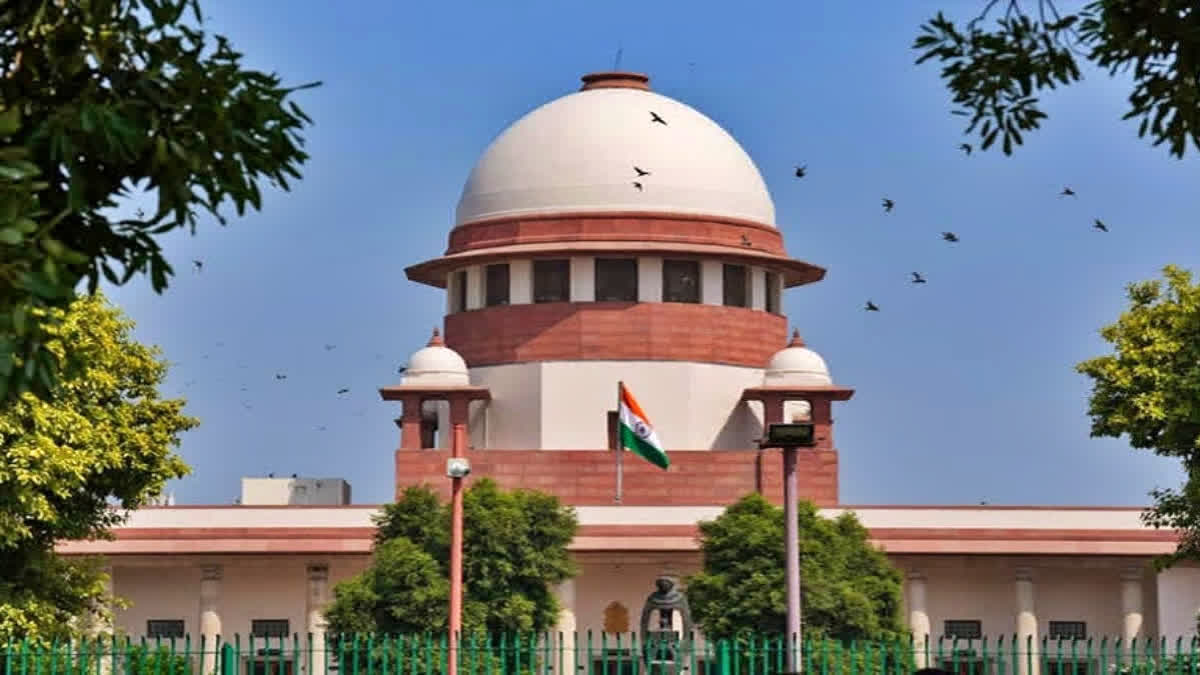New Delhi: The Supreme Court has dismissed a plea challenging an order passed by the National Consumer Disputes Redressal Commission, which rejected a complaint against a prominent hospital for negligence in the post-operative care of a patient.
A bench of Justices A S Bopanna and Prashant Kumar Mishra said the crucial issue to be decided is whether the respondents (Indraprastha Apollo Hospital, doctor, and another respondent) have committed negligence in not providing proper postoperative medical care to the patient. And, whether the commission has committed any illegality while dismissing the complaint filed by the appellant. The appellant’s entire case was about the lack of proper post-operative medical care.
The bench, in a judgment passed on October 17, said: “Since the deceased did not have any known or identifiable heart ailments, it was impossible for the respondents to have prior knowledge that the patient may develop cardiac problem, after few hours of the successful surgery”.
The bench said the symptoms, including dizziness, sweating, and pain in the neck area, experienced by the deceased post-surgery, could not be treated as post-surgery reactions. “All required steps were taken as revealed from the hospital record. There is no evidence put forth by the complainant to establish that the heart attack suffered by the patient had any connection with the operation in question or that it was on account of negligent post-operative care”, said the bench.
The bench said it was significant to notice that the patient did not have any history of diabetes, hypertension or any cardiac problem. “Therefore, it was difficult for treating doctors including the duty doctor or the hospital to assume that the patient may suffer cardiac arrest and moreover, the patient had also not complained of pain in any other part of the body except neck region”, it said.
The apex court said the case stands on a better footing, in as much as there was no mistake in diagnosis or a negligent diagnosis by the doctor. “In the absence of the patient having any history of diabetes, hypertension, or cardiac problem, it is difficult to foresee a possible cardiac problem only because the patient had suffered pain in the neck region”, it said.
The apex court dismissed the appeal by Kalyani Ranjan, whose 37-year-old husband Sankar Rajan, died on November 06, 1998, of a heart attack, allegedly due to negligence by the doctors at Indraprastha Apollo Hospital following a major neurosurgery.
The deceased was operated upon on October 29, 1998. He was shifted to a private room within hours. As he suffered unbearable neck pain, doctors were contacted but he suffered a heart attack at about 11 pm. On October 31, he was declared brain dead and remained on life support till his death on November 6, 1998.
The complainant-wife contended after such major surgery, the deceased should have been shifted to the Intensive Care Unit. She relied upon the principle of 'Res Ipsa Locutor' (mere accident sufficient to imply negligence) to attribute negligence to the hospital and doctors.
The bench said in so far as the applicability of principles of Res Ipsa Locutor, in the fact and circumstances of the case, it is to bear in mind that the principles get attracted where circumstances strongly suggest partaking in negligent behaviour by the person against whom an accusation of negligence is made. “For applying the principles of Res Ipsa Locutor, it is necessary that a ‘Res’ is present to establish the allegation of negligence. Strong incriminating circumstantial or documentary evidence is required for application of the doctrine,"it said.
Dismissing the plea, the apex court said the appellant has failed to establish negligence on the part of respondents in taking post-operative care and the findings in this regard recorded by the commission do not suffer from any illegality or perversity.



